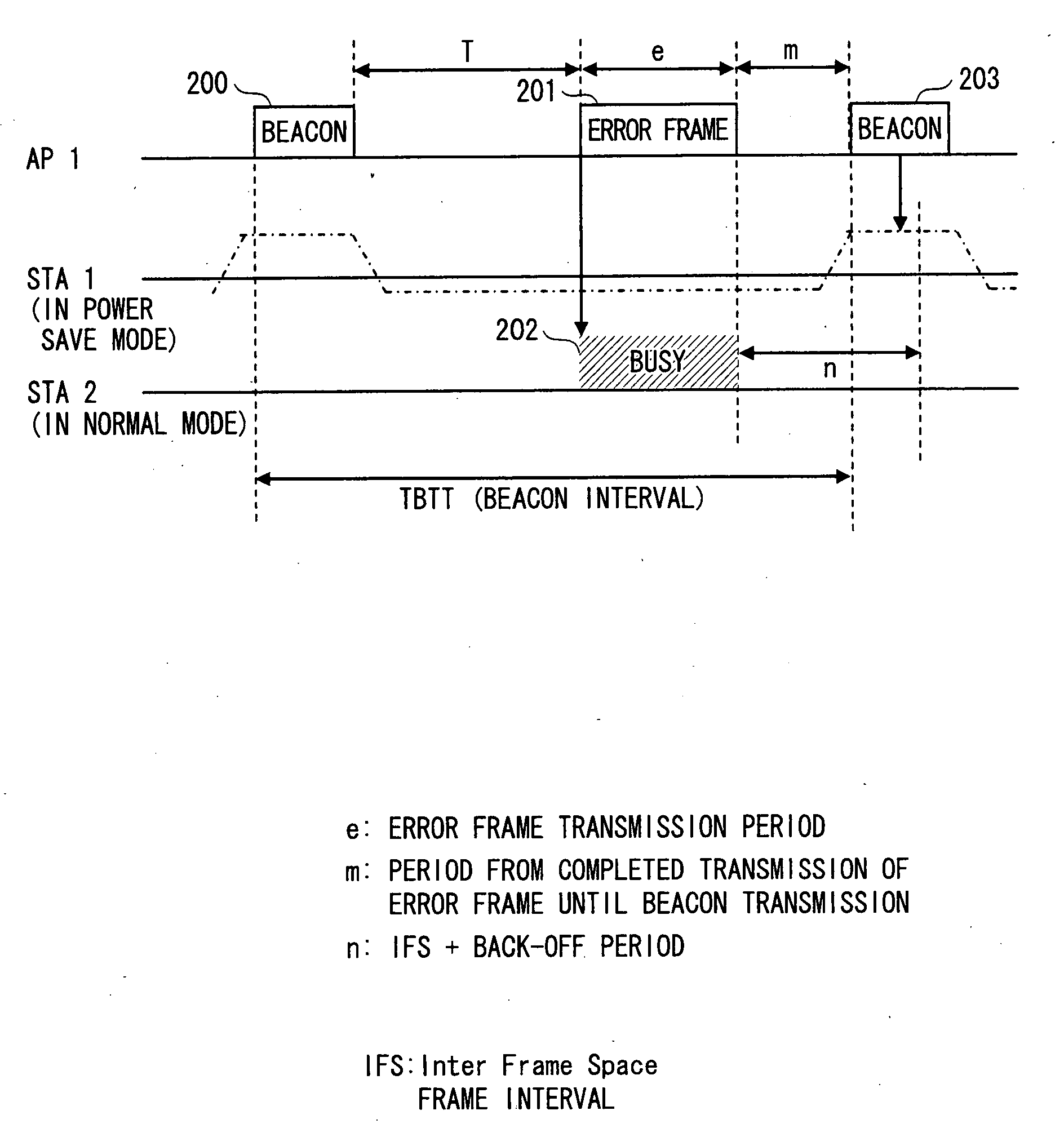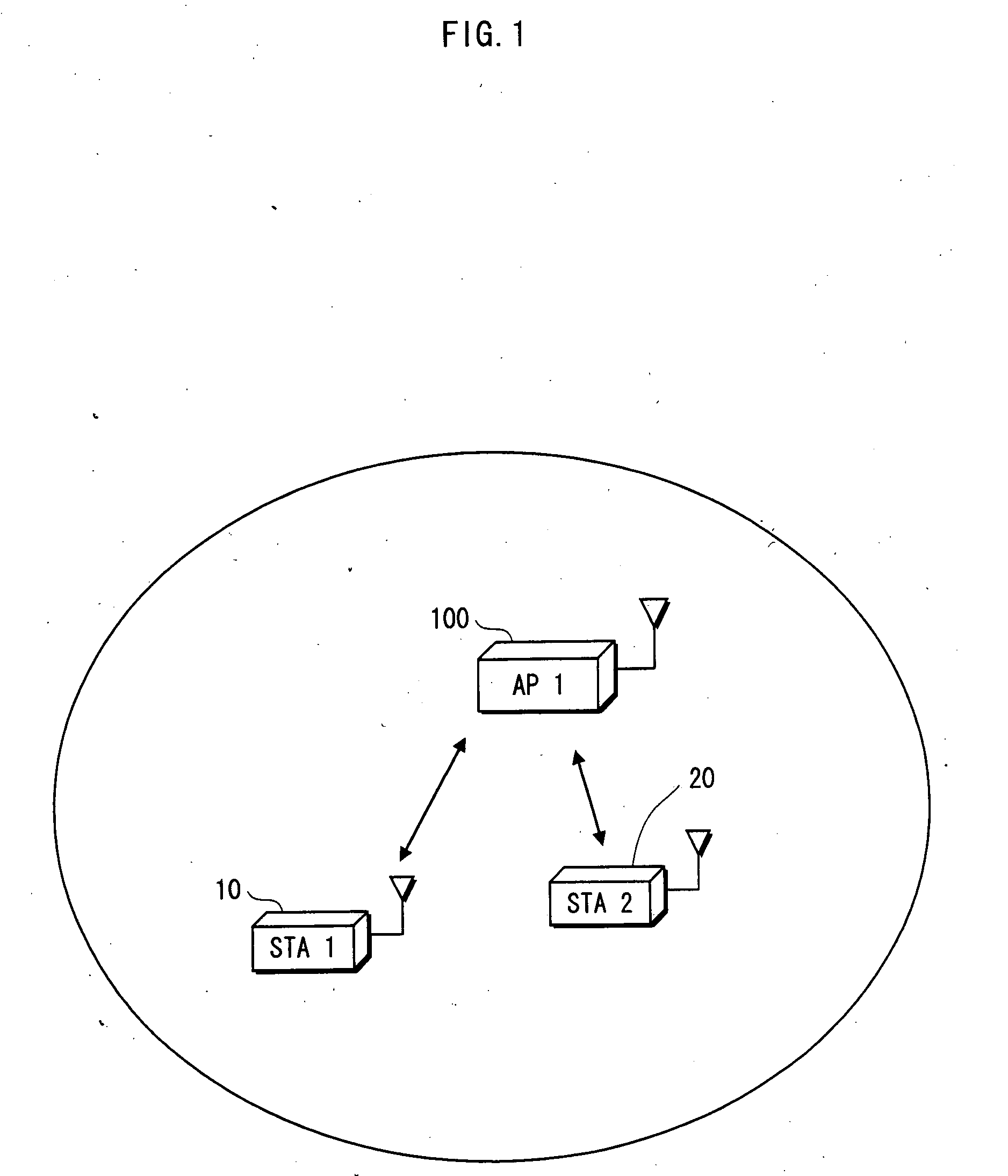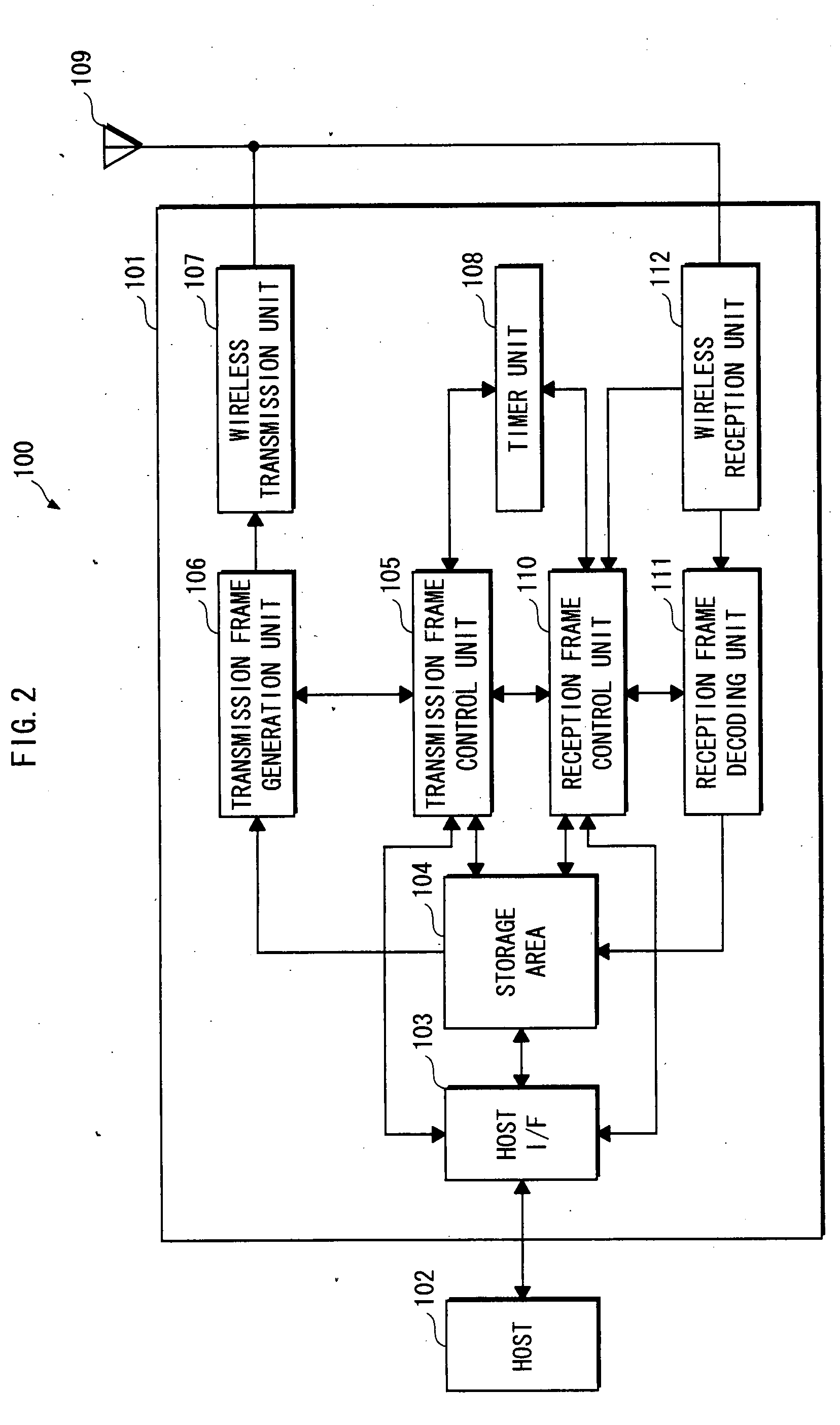Relay apparatus, communication terminal, communication system, and semiconductor integrated circuit
a communication terminal and relay technology, applied in the field of wireless lan (local area network) communication system, can solve the problems of not being able to appropriately transmit beacon signal to each communication terminal, and beacon signal cannot be transmitted
- Summary
- Abstract
- Description
- Claims
- Application Information
AI Technical Summary
Benefits of technology
Problems solved by technology
Method used
Image
Examples
embodiment 1
[0072]1. Overview
[0073]First is a description of a wireless LAN communication system pertaining to embodiment 1 of the present invention, with reference to FIG. 1.
[0074]As shown in FIG. 1, the wireless LAN communication system of embodiment 1 includes a communication terminal 10 (STA 1), a communication terminal 20 (STA 2), and an access point 100 (AP 1), which is a wireless LAN base station.
[0075]The wireless LAN communication system conforms to the IEEE 802.11 standard, and is operated in accordance with access control by the CSMA / CA method.
[0076]The access point 100 is an apparatus that controls the wireless LAN, and is connected to a larger-scale network such as another LAN or the Internet, which is not depicted in FIG. 1. While set to an infrastructure mode, the access point 100 relays communication when the communication terminals 10 and 20 on the network perform communication with each other and with communication terminals on another wireless LAN.
[0077]1-1. CSMA / CA
[0078]The ...
embodiment 2
[0115]The following describes embodiment 2 of the present invention with reference to the drawings.
[0116]1. Overview
[0117]Whereas the access point 100 transmits an error frame ahead of the beacon signal in embodiment 1, in embodiment 2 the access point 100 transmits a CTS frame specified in the IEEE 802.11 standard.
[0118]2. Structure of AP 1
[0119]The following describes only aspects of the structure that differ from embodiment 1.
[0120]Upon the timer unit 108 clocking a time T at which the CTS frame is to be transmitted ahead of the beacon signal, the transmission frame control unit 105 determines a NAV to be included in the CTS frame, generates CTS frame data that includes the determined NAV, and sends the generated data to the transmission frame generation unit 106.
[0121]The timer unit 108 conforms to the IEEE 802.11 standard, and clocks the predetermined cycle TBTT for cyclical transmission of the beacon signal, and a predetermined cycle T for transmission of the CTS frame ahead o...
embodiment 3
[0134]The following describes embodiment 3 of the present invention with reference to the drawings.
[0135]1. Overview
[0136]Whereas the access point 100 transmits an error frame ahead of the beacon signal in embodiment 1, in embodiment 3 the access point 100 transmits a PLCP header specified in the IEEE 802.11 standard.
[0137]As shown in FIG. 5A, according to the IEEE 802.11 standard, a PLCP preamble 400 necessary for reception synchronization processing as well as a PLCP header 401 containing information such as a transfer rate and a frame length are attached to transmission data 402 in the physical layer.
[0138]2. Structure of AP 1
[0139]The following describes only aspects of the structure that differ from embodiment 1.
[0140]Upon the timer unit 108 clocking a time T at which the PLCP header is to be transmitted ahead of the beacon signal, the transmission frame control unit 105 determines a Length to be included in the PLCP header, generates a PLCP header that includes the determined ...
PUM
 Login to View More
Login to View More Abstract
Description
Claims
Application Information
 Login to View More
Login to View More - R&D
- Intellectual Property
- Life Sciences
- Materials
- Tech Scout
- Unparalleled Data Quality
- Higher Quality Content
- 60% Fewer Hallucinations
Browse by: Latest US Patents, China's latest patents, Technical Efficacy Thesaurus, Application Domain, Technology Topic, Popular Technical Reports.
© 2025 PatSnap. All rights reserved.Legal|Privacy policy|Modern Slavery Act Transparency Statement|Sitemap|About US| Contact US: help@patsnap.com



